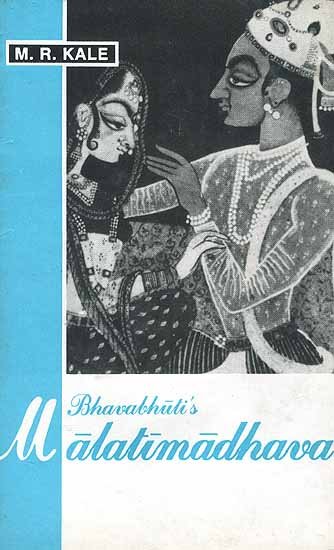Malatimadhava (study)
by Jintu Moni Dutta | 2017 | 52,468 words | ISBN-10: 8120813057 | ISBN-13: 9788120813052
This page relates ‘Worship of gods and goddesses’ from the English study on the Malatimadhava of Bhavabhuti:—A Prakarana type of Drama in ten acts revolving around the love-story of Malati (from Padmāvatī) and Madhava (from Vidarbha). This study discusses the history of its author and the literary, social, religious, historical and cultural aspects of the Malatimadhava.
Part 1.1 - Worship of gods and goddesses
During Bhavabhūti’s time there was religious passion. No religious discrimination occurred during his time.Although he was an orthodox Hindu by birth but the Buddhist religion became the second popular religion during his time.
In the Mālatīmādhava, Bhavabhūti has given the reference to the worship of different gods and goddesses.In the very beginning of the Prakaraṇa,through the benedictory verses Bhavabhūti worshipped lord Śiva, Ganeśa as well as the Sun to prevent obstacles.[1] In the 1st act of the Mālatīmādhav, Bhavabhūti had mentioned that his ancestors were performers of Vedic rituals and sacrifices.[2] In the same act it was found that Saudāminī had attained miraculous power by practising the vow of Kāpālika, a religious sect who worshipped Śiva in the terrific form in the mountain Śrī.[3]
During Bhavabhūti’s time the Śakti, the consort of Śiva attained a great predominance. People worshipped the goddesses Śakti with sacrifices of animals and occasionally also human beings. In the Mālatīmādhava, Bhavabhūti has given the reference of worshipping goddess Karālā, who was known as Cāmuṇḍā[4] the name of Pārvatī in her terrific form.In the 5th act it was found that Aghoraghaṇṭa commanded Kapālakuṇḍalā to collect the materials of worship to offer to the goddess Karālā, [5] where Aghoraghaṇṭa promised to offer a womankind to the goddess Karālā for the attainment of miraculous power.[6] Thus, it appears that people of Bhavabhūti’s time used to worship different god and goddess.
Footnotes and references:
[1]:
Mālatīmādhava,I.1,2,3
[2]:
Ibid., I.p.7
[3]:
bhagavati sā saudāminyadhunā samāsāditāścaryamantrasidhiprabhābhā śrīparvate kāpalikavrataṃ dhārayati /
Ibid.,I.p.18
[4]:
[5]:
